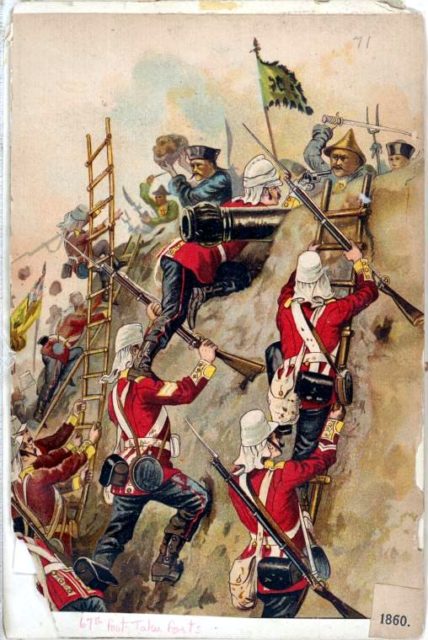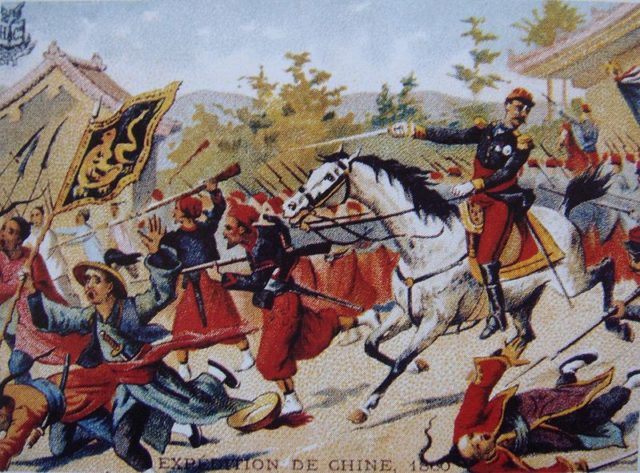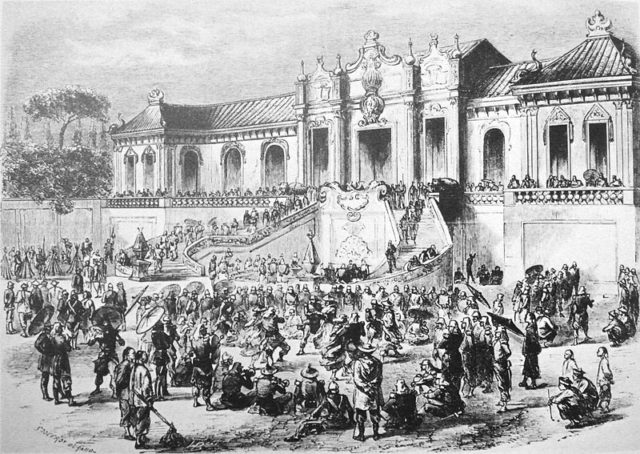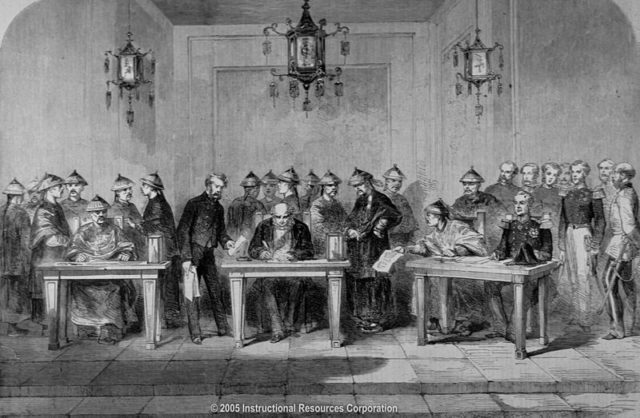The second Opium War was sparked for petty reasons. In short, it was because the British were still not allowed into the city of Canton, China. The British were not happy with this as it inconvenienced them and obstructed their economic access to China. Also, many British officers were rankled that a society had the cheek to refuse them entry in the first place. In 1856, Chinese police boarded a British boat that was incorrectly registered and suspected of piracy.
They removed from the boat twelve Chinese citizens, including three very well-known pirates that had been hired on by the merchant. The British protested the boarding and the men were returned. Their officials, seeing an opening to raise the issue about British people not being allowed in the city, demanded a written apology. The Chinese refused their demands, and within a month, a British gunboat opened fire on Canton. The British wanted the Treaty of Nanking to be rewritten more in their favor, and this time the French and Japanese joined in.

The European military forces were too powerful against the Chinese and the British quickly decimated the Chinese fleet at Canton and took the city. No matter what the Chinese did, the British proved superior in military force, and they destroyed the Chinese forts and any inland armies that rose against them.
The young Emperor had no choice but to flee to a hunting lodge hundreds of miles away from the city. The prince who was left took all foreign ambassadors hostage when they came to negotiate a treaty.

The French and British armies only numbered 3,500, and the Chinese had 20,000 soldiers. The military advantage came in the training and weapons that the Europeans had, compared to those of the Chinese. The Chinese cavalry only had bows and arrows where the Europeans had Enfield rifles. In one major battle alone there were 35 European deaths to 1,500 Chinese.

The European forces moved onto Peking where they looted and destroyed the royal treasure. The Summer Palace was quickly stripped clean of anything of value except for the two large lion statues that were thought to be made out of brass but were in fact solid gold. The looters burned down the Summer Palace. There were discussions about destroying the Forbidden City due to the ongoing capturing and torturing of prisoners by Chinese fighters. The idea was discarded as it felt that this would jeopardize the ongoing negotiations, so only the Summer Palace was destroyed.
New treaties were written forcing China to let in Christian missionaries and have more open trade with the Europeans. The treaties of Tianjin, signed in 1858, allowed for foreign envoys to get residences in Beijing, established the right of foreigners to travel in China, and later, in further negotiations in the year, legalized the importation of opium.

Prince Gong, the Emperor’s brother, ratified the treaty in 1860 in the Convention of Beijing, ending the Second Opium War.
China now had to pay Britain and France 8 million taels of silver, there was now freedom of religion across China, Kowloon was given to Britain, and the British were allowed to take away indentured Chinese to America. Finally, the British had gotten what they had wanted.
